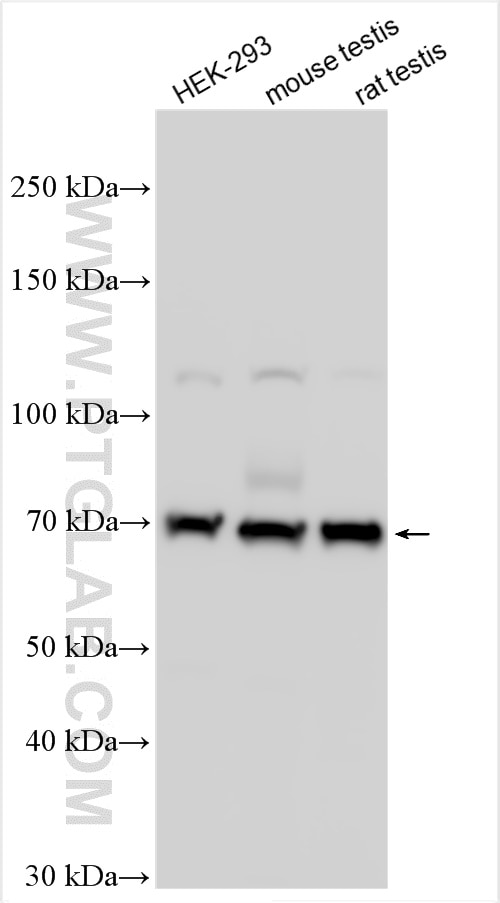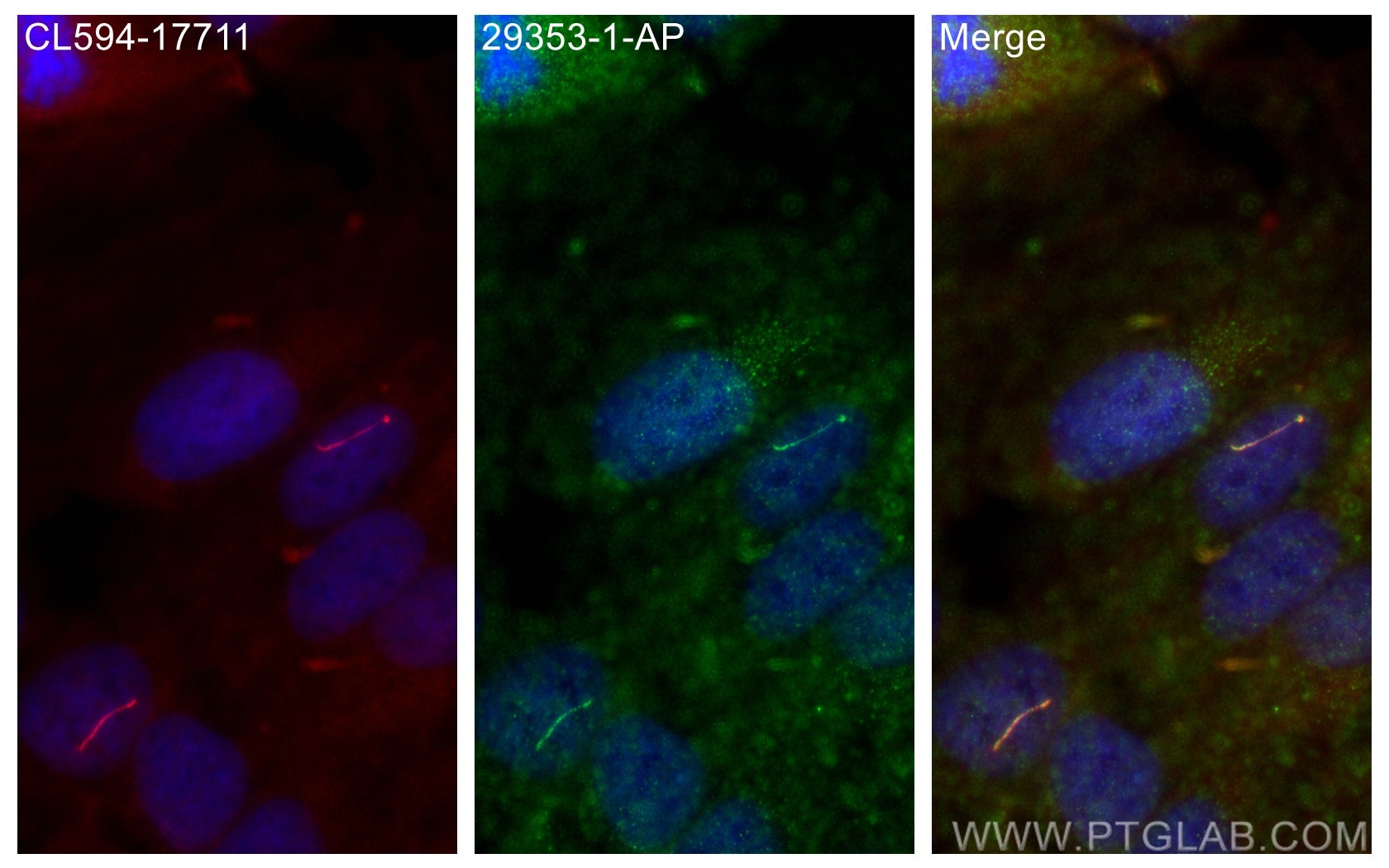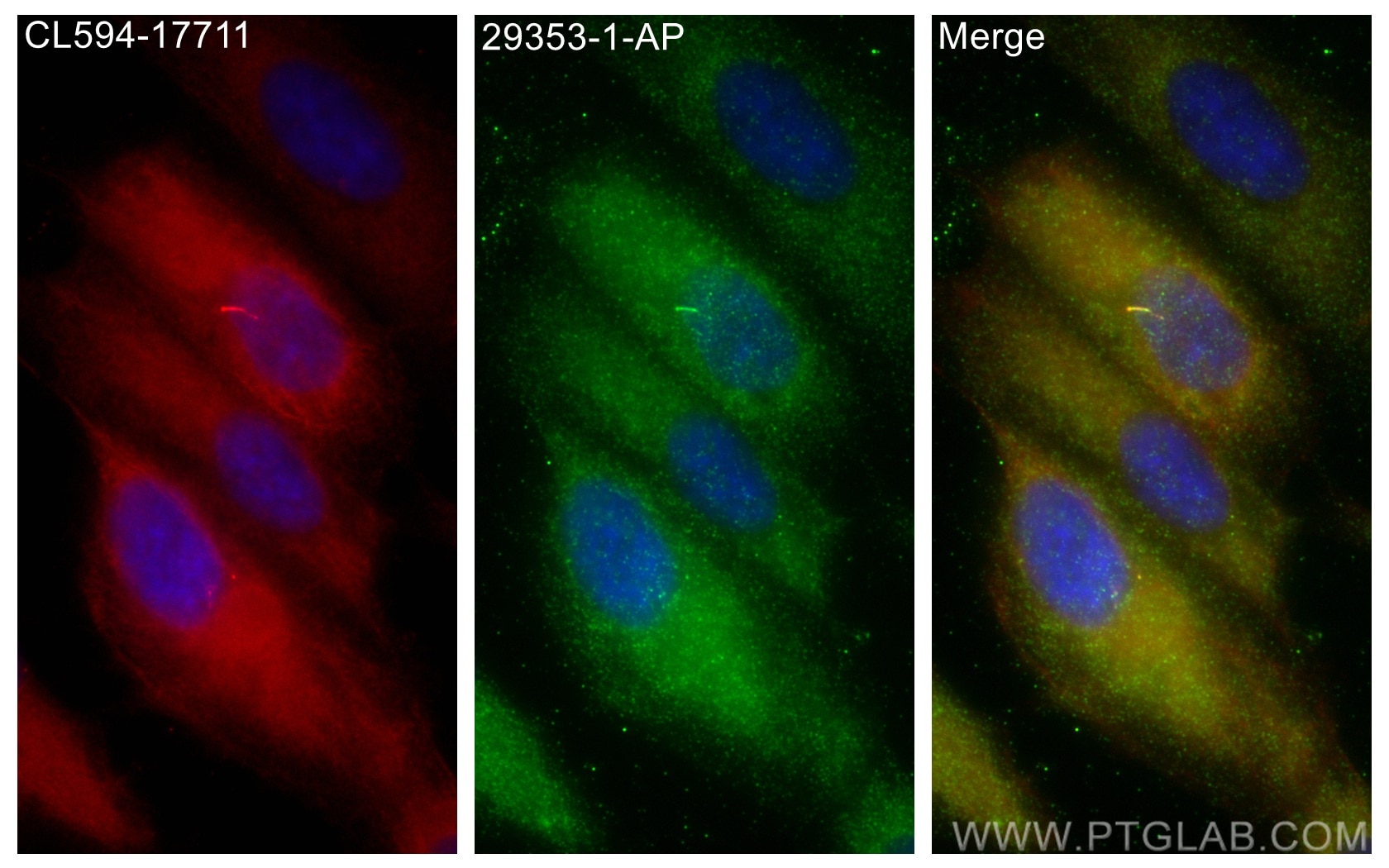Validation Data Gallery
Tested Applications
| Positive WB detected in | HEK-293 cells, mouse testis tissue, rat testis tissue |
| Positive IF/ICC detected in | ARPE-19 cells |
Recommended dilution
| Application | Dilution |
|---|---|
| Western Blot (WB) | WB : 1:500-1:3000 |
| Immunofluorescence (IF)/ICC | IF/ICC : 1:50-1:500 |
| It is recommended that this reagent should be titrated in each testing system to obtain optimal results. | |
| Sample-dependent, Check data in validation data gallery. | |
Product Information
29353-1-AP targets INPP5E in WB, IF/ICC, ELISA applications and shows reactivity with Human, mouse, rat samples.
| Tested Reactivity | Human, mouse, rat |
| Host / Isotype | Rabbit / IgG |
| Class | Polyclonal |
| Type | Antibody |
| Immunogen |
CatNo: Ag30305 Product name: Recombinant human INPP5E protein Source: e coli.-derived, PGEX-4T Tag: GST Domain: 184-350 aa of BC028032 Sequence: RLPSLLPPRPPPALSLDIASDSLRTANKVDSDLADYKLRAQPLLVRAHSSLGPGRPRSPLACDDCSLRSAKSSFSLLAPIRSKDVRSRSYLEGSLLASGALLGADELARYFPDRNVALFVATWNMQGQKELPPSLDEFLLPAEADYAQDLYVIGVQEGCSDRREWET 相同性解析による交差性が予測される生物種 |
| Full Name | inositol polyphosphate-5-phosphatase, 72 kDa |
| Calculated molecular weight | 644 aa, 70 kDa |
| Observed molecular weight | 70 kDa |
| GenBank accession number | BC028032 |
| Gene Symbol | INPP5E |
| Gene ID (NCBI) | 56623 |
| RRID | AB_3086123 |
| Conjugate | Unconjugated |
| Form | |
| Form | Liquid |
| Purification Method | Antigen affinity purification |
| UNIPROT ID | Q9NRR6 |
| Storage Buffer | PBS with 0.02% sodium azide and 50% glycerol{{ptg:BufferTemp}}7.3 |
| Storage Conditions | Store at -20°C. Stable for one year after shipment. Aliquoting is unnecessary for -20oC storage. |
Background Information
INPP5E(72 kDa inositol polyphosphate 5-phosphatase) converts phosphatidylinositol 3,4,5-trisphosphate (PtdIns 3,4,5-P3) to PtdIns-P2.In mouse, highest protein expression was in brain, heart, and testis, with lower expression in thymus and lung, and very little expression in kidney, spleen, and liver(PMID:10764818). Defects in INPP5E are the cause of Joubert syndrome type 1 (JBTS1) and mental retardation-truncal obesity-retinal dystrophy-micropenis (MORMS)(PMID:19668215). It has 2 isoforms with the molecular mass of 66 kDa and 70 kDa.
Protocols
| Product Specific Protocols | |
|---|---|
| IF protocol for INPP5E antibody 29353-1-AP | Download protocol |
| WB protocol for INPP5E antibody 29353-1-AP | Download protocol |
| Standard Protocols | |
|---|---|
| Click here to view our Standard Protocols |



